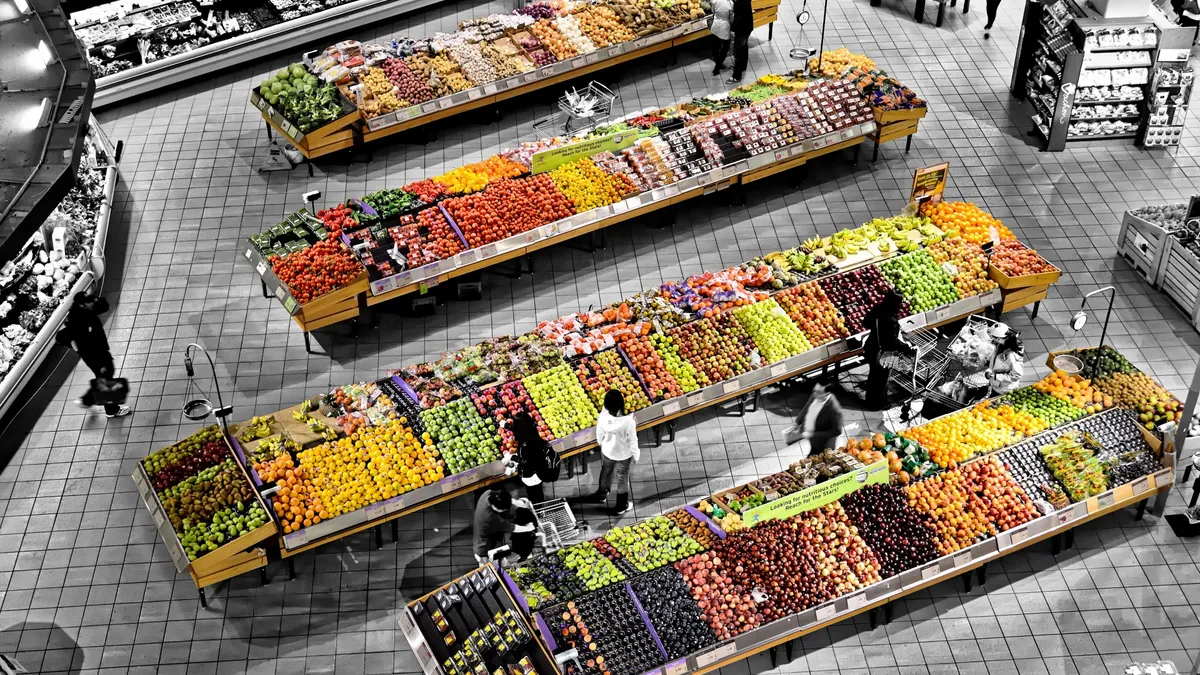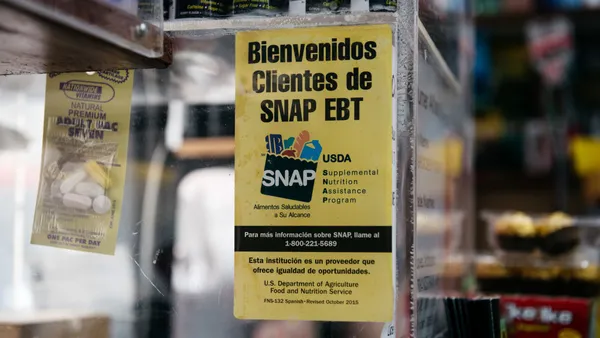Dive Brief:
- The percentage of consumers who report that grocery stores are typically fully stocked reached 27% in mid-July, its highest level since late March, when it was 13%, according to research published by the Food Industry Association (FMI).
- The share of customers who say that many products are generally unavailable on store shelves has fallen to 18%, down from 46%, the latest findings from the association’s ongoing U.S. Grocery Shopper Trends COVID-19 Tracker survey indicate.
- Weekly spending on groceries remains above pre-pandemic levels, but is lower than it was when the health crisis was in its early stages. Consumers who participated in the FMI survey in July said they spent a weekly average of $134 on groceries, compared with the average of $161 reported by survey respondents in late March and early April.
Dive Insight:
FMI's research underscores the crucial role grocery stores have been playing in people’s lives since authorities began shutting down much of the retail sector and asking people to avoid leaving their homes in response to COVID-19.
The Hartman Group, a firm that studies food and beverage culture in the United States, analyzed the data for FMI.
People have become accustomed to preparing meals at home more often than they did before the pandemic began, and nearly half expect that to continue even after the health crisis ebbs. FMI’s research found that 22% of the consumers it polled have improved their cooking skills, and 29% have become better able to plan meals.
Shoppers also report that their eating habits have been improving as the pandemic wears on. Thirty-nine percent of the 1,022 consumers who participated in the most recent round of the FMI survey, conducted online from July 14 to July 20, said they are eating healthier, compared with 36% of those who were polled between April 15 and April 25.
The deepening relationship between U.S. consumers and their kitchens could have a long-term impact on restaurants. Thirty-nine percent of respondents to the most recent FMI survey — the eighth wave of the research into shopper trends FMI has fielded since the pandemic started — said they expect to purchase food from restaurants less often post-COVID.
In another helpful sign for the grocery industry, actions taken by food retailers to meet the needs of consumers buffeted by the pandemic are winning high grades. Sixty-three percent of respondents to FMI’s July poll said they believe the grocery store they use the most is “on their side,” and 55% said the same thing about food stores as a group.
That positive sentiment about food retailers’ behavior also emerged in a national survey of company reputations released last month by Harris Insights & Analytics. Grocers including Publix, Wegmans, Costco and Kroger all took top spots in the 2020 Axios Harris Poll 100, which parsed responses from more than 34,000 shoppers in the United States.













